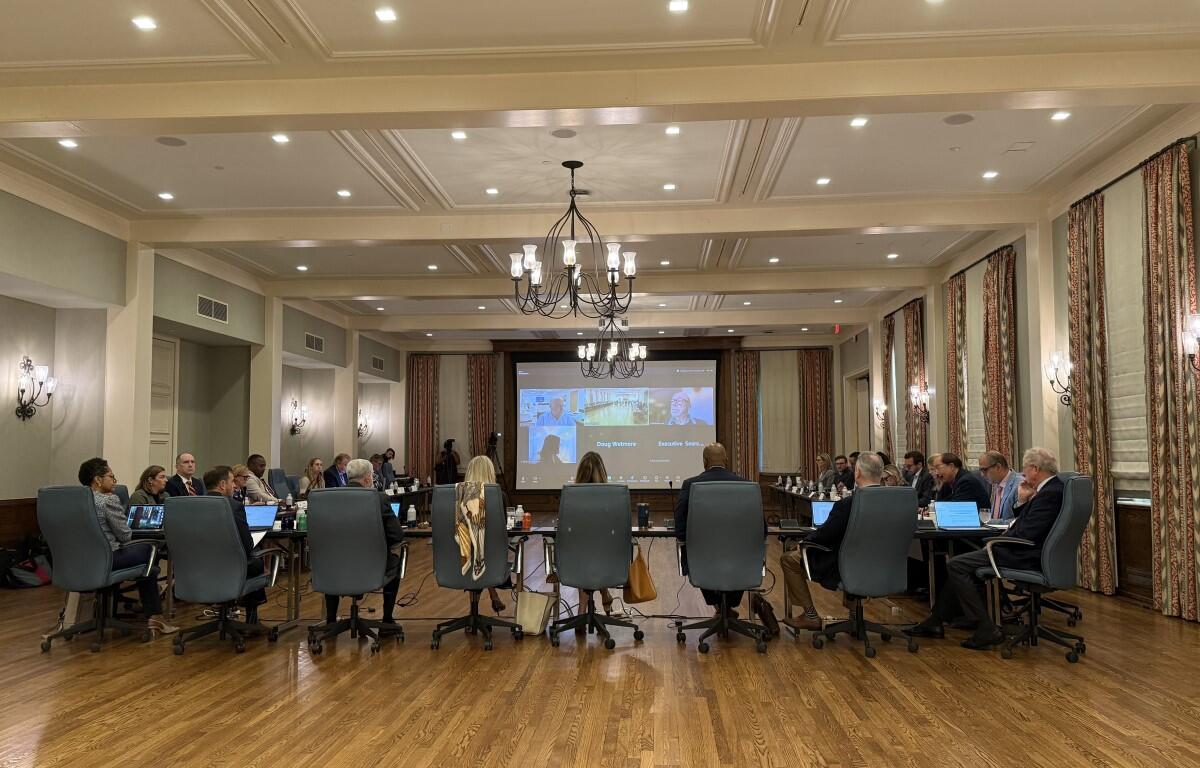CHARLOTTESVILLE, VA (CVILLE RIGHT NOW) – The executive search consultant running the search for the University of Virginia’s next president has talked with about 30 potential candidates for the post, people “who’ve expressed something between tentative to extraordinary interest,” and presented that group to the Board of Visitors on Tuesday.
But the presentation raised some eyebrows among faculty concerned about the process.
John Isaacson of executive search firm Isaacson/Miller in a meeting Tuesday of the 10th Presidential Search Special Committee, the group’s third, told the group before they considered this “first presentation of candidates” in closed session, “They’re not as a group politically or ideologically aligned with much of anyone.”
He said the more than 30 candidates emerged through recruitment, nominations and applications and possess academic missions aligned with those of the University of Virginia’s.
“Their interest is a considerable tribute to UVA, we are exceedingly pleased to see,” Isaacson said.
Isaacson said the plan is to see the candidates at this meeting and discuss at the next meeting Nov. 3 to choose those they want to interview. He expects that could between six and eight candidates, and he said that would have them on track to conduct formal interviews at the end of November.
The consultant said they’ve also continued taking public feedback over 35 listening sessions, and they’ve received more than 1,000 responses on the web survey, and they’re still taking feedback toward a Presidential profile.
UVA United Campus Workers of Virginia representatives observing the meeting are wondering how there can be some 30 candidates already when a profile has not even been completed. Sociology Professor Ian Mullins said they have not moved from their position that this process is too fast, not transparent, and the Board of Visitors has done nothing to earn their trust in the process.
“The rector and vice rector have not reached out to faculty, staff or students in order to do any of the repair work that we’ve talked about previously,” Mullins said. “And, until they do, the faculty trust is going to suffer, like people do not trust this BOV to make these decisions.”
Trump’s letter to nine universities, including UVA, asking them to commit to his vision of higher education in exchange for preferential access to federal funding, has complicated the issue.
“With the new news of the Compact, people are more concerned than they’ve been to this point,” Mullins said.
He’s concerned the prospect of the Compact could affect the hiring decision.
“What kind of candidate wants to walk into a University that could potentially give away its academic freedom, free speech, its ability to govern itself, and for faculty to teach and research the things they were hired to teach and research,” Mullins said. “We’re concerned with the Compact’s ability to chill our ability to find truth. I mean, we’ve seen with this Administration when they find information they don’t like, they try to silence it.”



